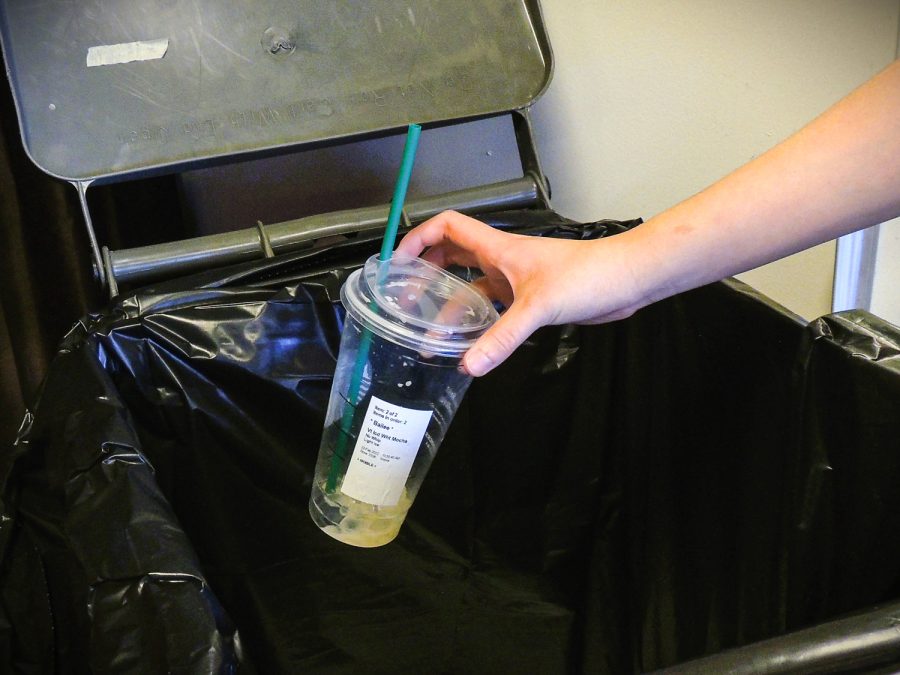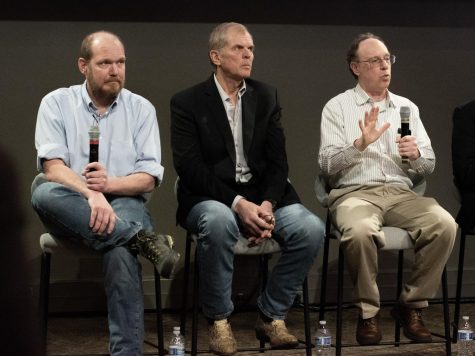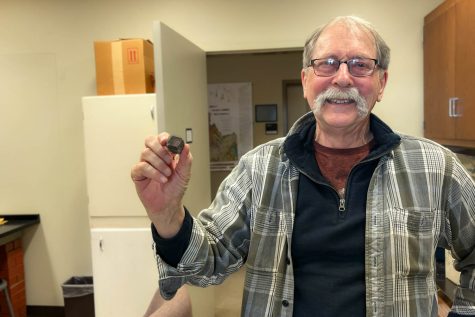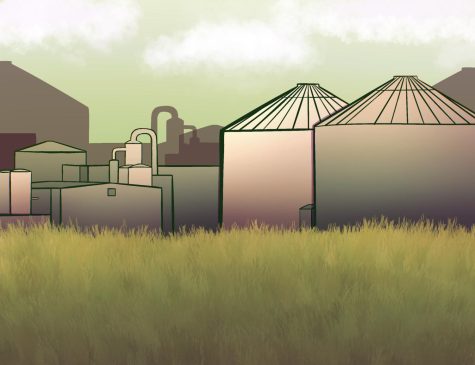‘We all need to reduce our dependence on plastic’
Using reusable straws instead of plastic straws increases sustainability
A student throws away a drink in the Compton Union Building, Feb 22.
February 25, 2022
Today is National Skip the Straw Day, which was created in hopes of spreading the importance of recycling and sustainable practices.
Skip the Straw Day was started by Susan Tate, a science teacher at Whitehall Middle School in alongside students. They constructed the day in order to help spread awareness about the dangers that plastic can pose to the environment, according to the National Day Calendar article.
Since the 1950s, humans have produced around 9.1 billion pounds of plastic, according to an Undark article.
According to an article from The Conversation, plastic is responsible for more greenhouse gas emissions than the aviation industry.
Rick Finch, manager of WSU Waste Management, said the way plastic is disposed of is a global problem.
“Only about 10% or less has ever been recycled, and the rest of it is either buried in landfills, blowing around the environment and in the oceans,” he said.
Plastic replaces healthy organic soil, chokes out life, and affects fish and wildlife by ingesting it or getting their heads stuck in it, Finch said.
He said from his experience, plastic is everywhere in the ocean and most of it is reusable.
WSU has been running its recycling program since the early 1990s, before the City of Pullman even had one, Finch said.
He said we need to start looking for solutions and alternatives to using plastic. However, if plastic is used, there needs to be ways to reuse it.
Nathan Kite, WSU Waste Management coordinator, said eliminating single-use items like straws, bags and plastic containers with reusable options is a simple step that everyone can take. Using stainless steel straws, reusable grocery bags and glass food containers are ways to act more sustainable.
“Simply following the signage of your local recycling programs is an easy thing that everyone can do,” Finch said.
He said the biggest worldwide obstacle to recycling is wealth and education.
“Worrying about sustainability is a luxury of privilege, and so those of us that have it, we need to do things to create producer responsibility,” Finch said.
He said for a high percentage of the world, thinking about how to package their groceries sustainably is not at the top of the list: it may be hard for some people who have trouble paying their rent or don’t have enough money to feed their kids to think about issues like the overuse of plastic.
Finch said there are some on-campus restaurants like Freshens that are ahead of the curve when it comes to using sustainable products.
However, Kite said COVID-19 did impact some progress.
“Once COVID hit, all dining shut down; so there was the fear of spreading germs, which took a hit on sustainability because we had to go single-use,” he said.
Most take out containers are styrofoam or flimsy plastic containers, which are both non-recyclable and single-use, Kite said.
Finch said replacing plastic straws with reusable straws is just a small piece to the puzzle.
“If you look at the big picture, it’s kind of silly almost, but the messaging of ‘we all need to reduce our dependence on plastic and find alternatives,’ is something that we can all agree on,” Finch said.

















